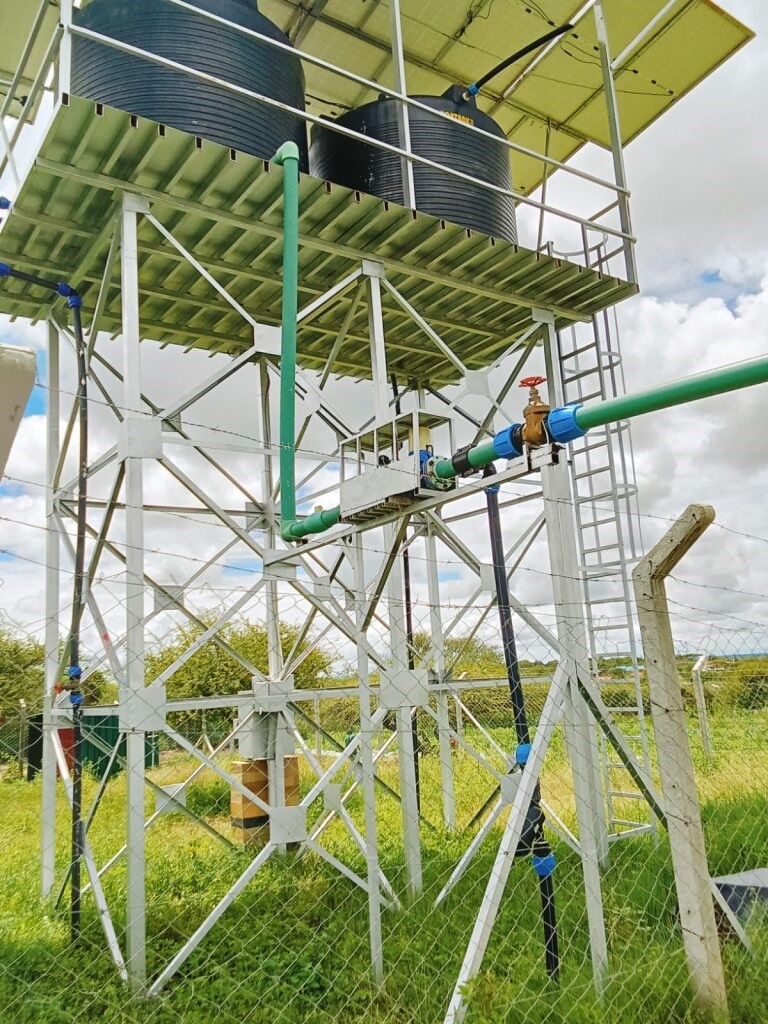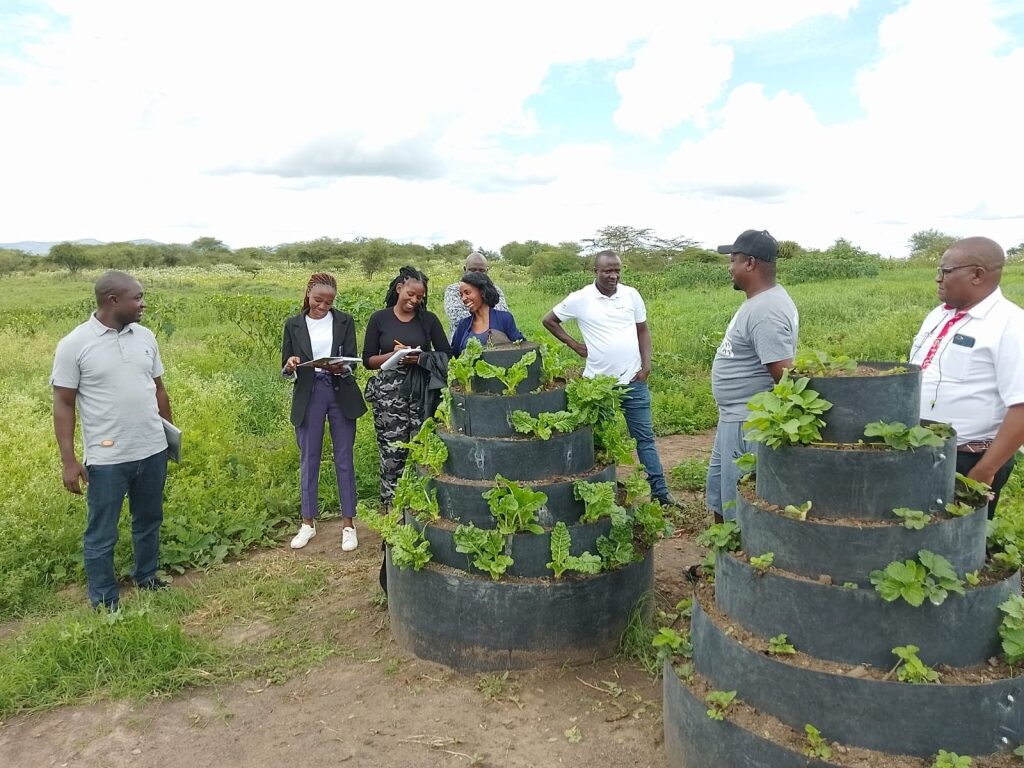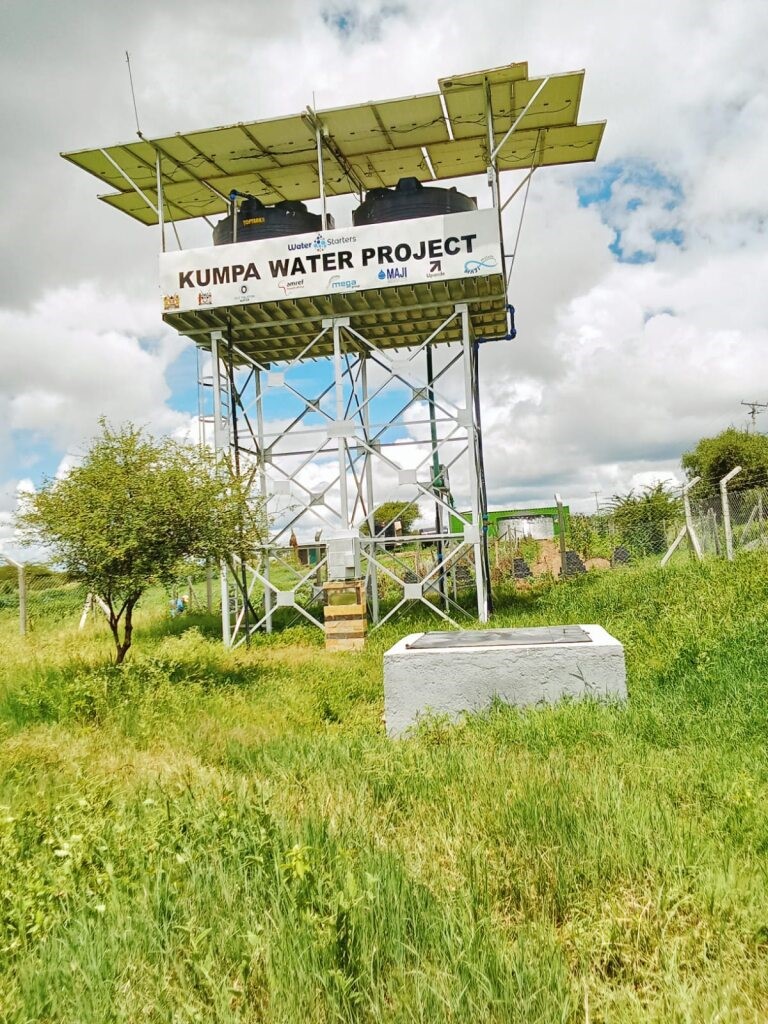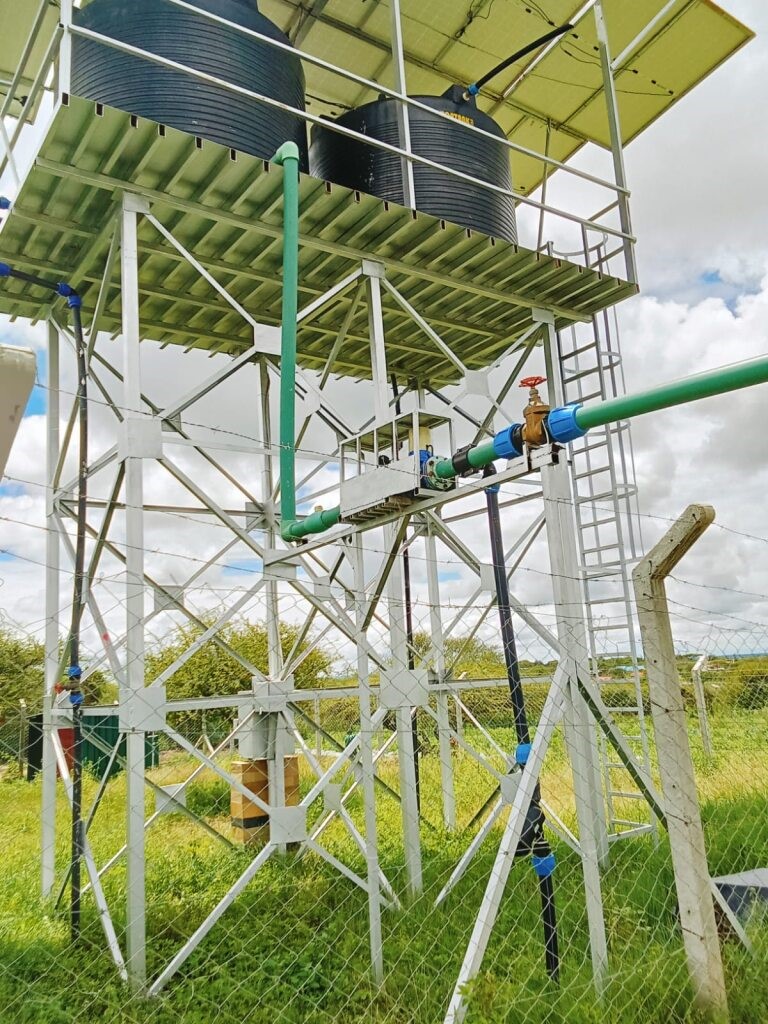Transforming Communities Through Water Access and Livelihood Development
 The WaterStarters program, implemented by Amref in partnership with KCIC Consulting Limited (KCL) is revolutionizing water access and livelihood development in Kenya. Focused on creating climate-resilient communities, the program co-funds borehole projects and economic empowerment strategies, aiming to benefit 1.5 million Kenyans in water-stressed areas over the next seven years. The program’s franchise model requires communities to co-invest at least 15% of the initial project costs, fostering ownership and ensuring financial sustainability.
The WaterStarters program, implemented by Amref in partnership with KCIC Consulting Limited (KCL) is revolutionizing water access and livelihood development in Kenya. Focused on creating climate-resilient communities, the program co-funds borehole projects and economic empowerment strategies, aiming to benefit 1.5 million Kenyans in water-stressed areas over the next seven years. The program’s franchise model requires communities to co-invest at least 15% of the initial project costs, fostering ownership and ensuring financial sustainability.
KCIC Consulting plays a critical role in the agricultural pillar of the WaterStarters program. We are training them on group dynamics and enterprise development and providing training in commercializing agriculture and livestock, capacity building, enterprise development, business development and commercialization of the business plan, climate adaptation strategies, franchisee onboarding, and program scaling. This support is empowering communities, particularly women and youth, to develop sustainable agribusiness ventures. We are providing borehole facilities which have increased the quantities of water produced, reducing the distance people in the community have to make to find water. There is household water connectivity which has enhanced the business ecosystem and increased crops and livestock production.
 Field visits to projects like Kibiko, Kumpa, and Nareto Latia have provided valuable insights:
Field visits to projects like Kibiko, Kumpa, and Nareto Latia have provided valuable insights:
– Rose from Kibiko is focusing on agroforestry and kitchen gardening to increase livelihoods and climate resilience.
– Eshter from Kumpa exemplifies successful co-investment, supporting farming and livestock activities, and employing numerous women through a demonstration farm.
– From the Nareto Latia Indigenous People’s Program, the community is building resilience for Maasai women and youth through livestock keeping, agriculture, beekeeping, sand harvesting, and various youth resilience and business incubation programs.
Challenges and Recommendations
While progress has been made, more needs to be done. Challenges such as community ownership and co-investment are affecting them, but encouragingly, strong community engagement and commitment, as demonstrated by the donation of land for a youth resilience training center, show promise.
To address these challenges and ensure continued success, the following recommendations are proposed: 
– Community Engagement: We must emphasize participatory decision-making processes to foster ownership.
– Awareness Campaigns: We have to address community resistance with targeted awareness campaigns highlighting the benefits of co-investment.
– Innovative Financing: We must explore microfinance, local financial institution partnerships, or crowdfunding to enhance community co-financing.
– Mapping Techniques: We need to utilize data-driven and participatory mapping techniques to identify high-priority communities.
– Renewable Energy Solutions: We must address sustainable energy challenges with solar-powered pumps.
– Documentation and Replication: We must document and replicate successful models, invest in capacity building and training programs, strengthen monitoring and evaluation mechanisms, foster closer collaboration among partners, and advocate for supportive policies at national and local levels.
WaterStarters is unlocking a future of water security and economic prosperity. Communities are gaining reliable access to clean water, while the program’s co-investment model is empowering residents, fostering business ecosystems, and enhancing livelihoods across the region.
By Lisbeth Kamau



